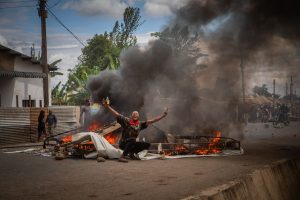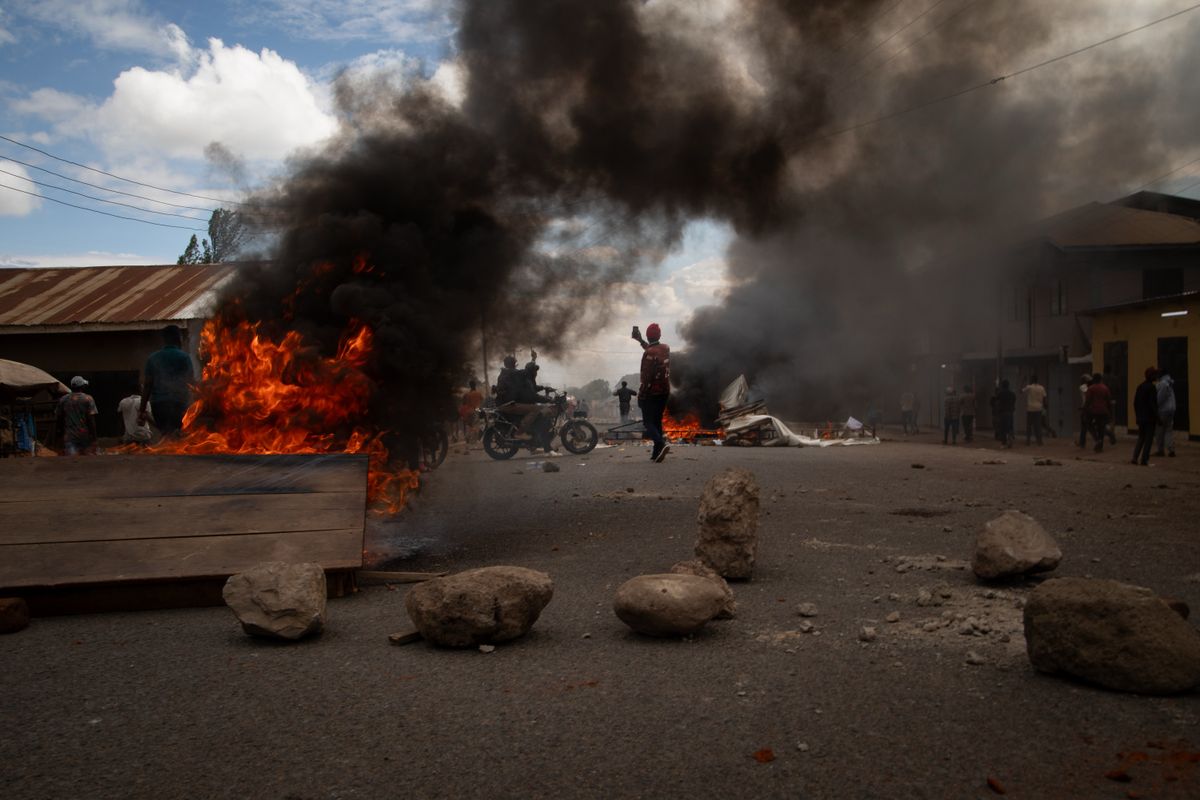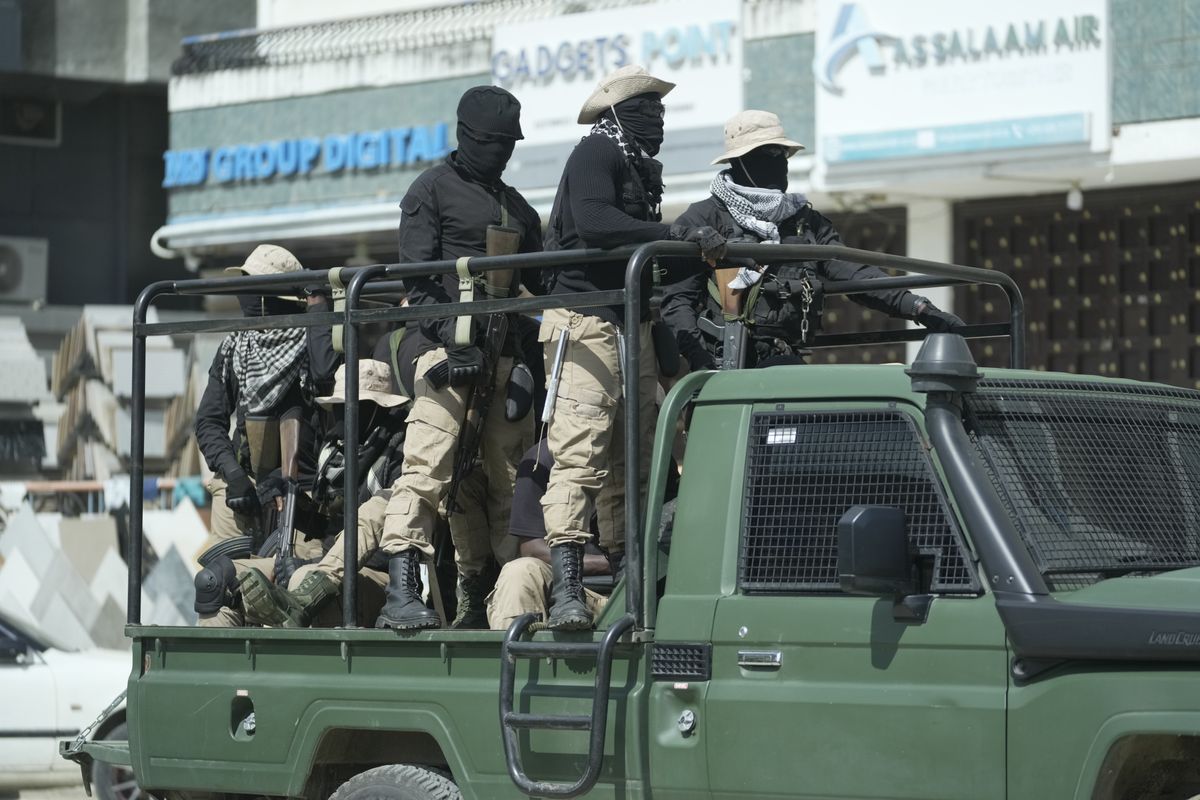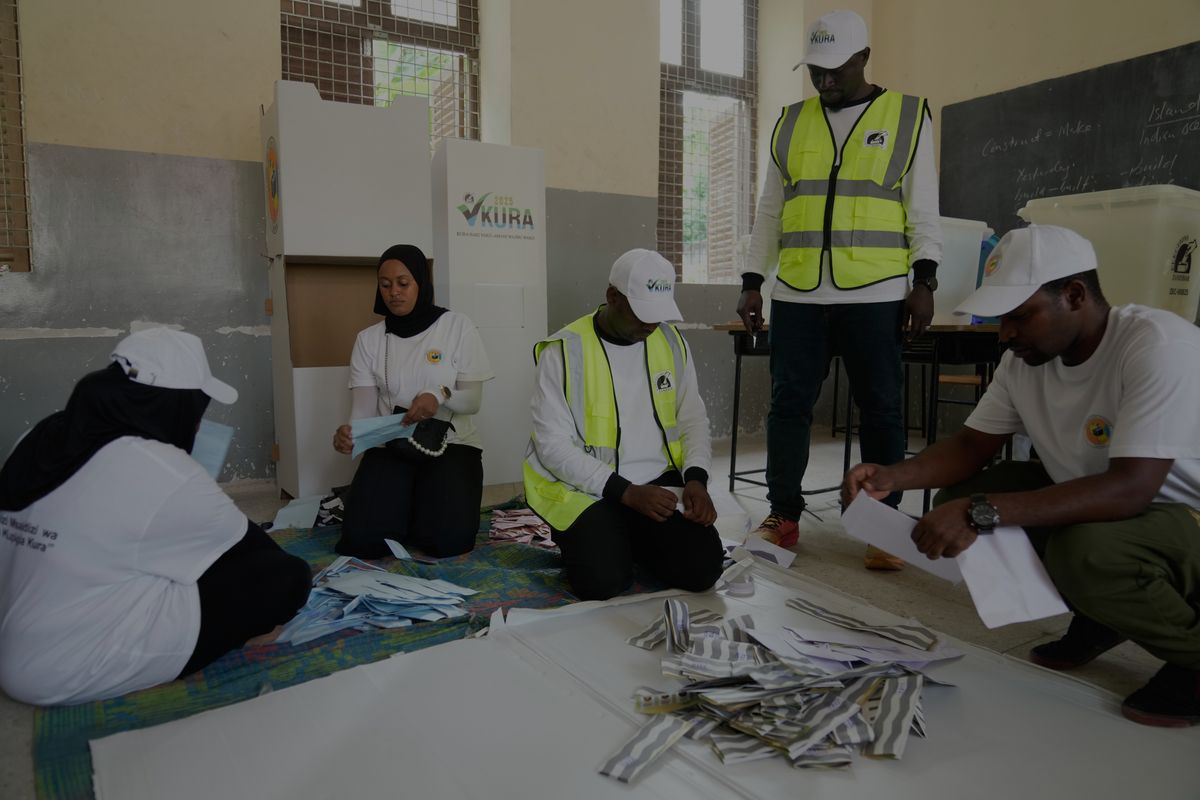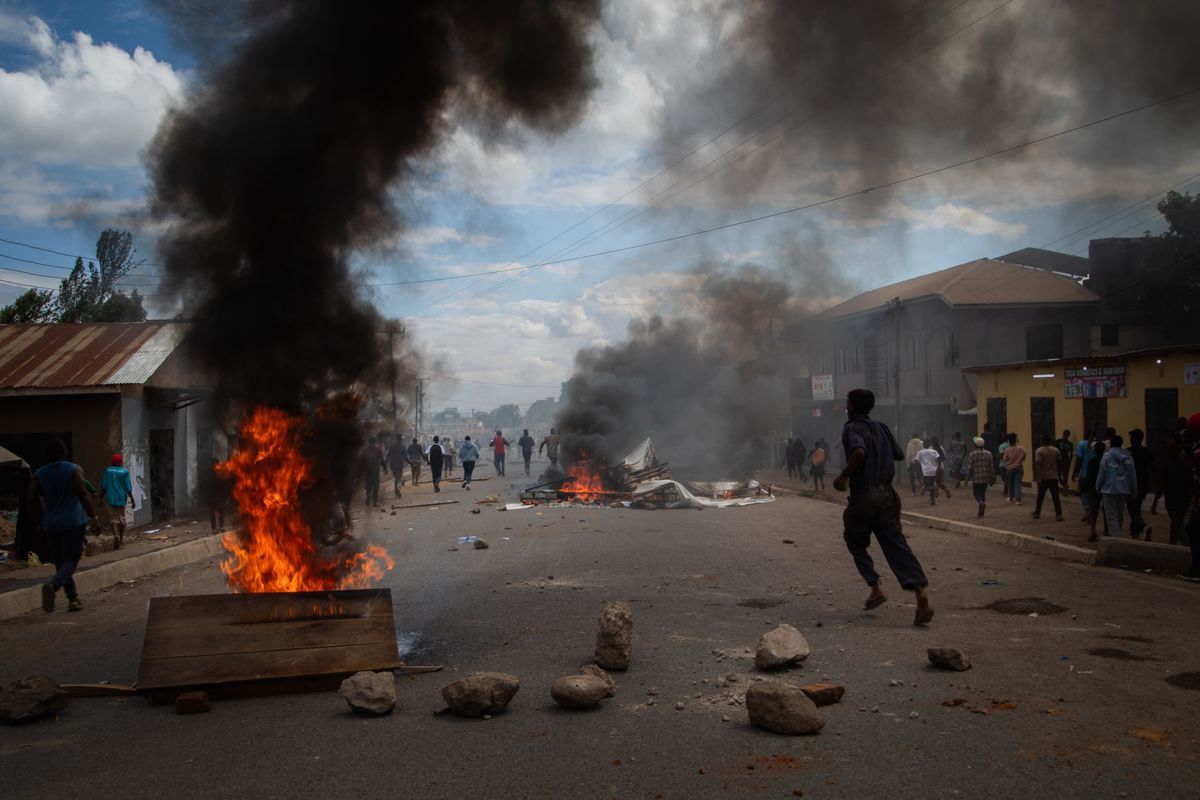KAMPALA, Uganda (AP) — Protests are spreading in Tanzania as electoral authorities count the votes in a disputed presidential election that rights groups, opposition figures and others say was clouded by a climate of fear in the months leading to election day.
The military has been deployed alongside the police to quell riots in major cities since Wednesday’s election. The sight of soldiers patrolling the streets, sporadic gunfire and closed stores is rare in the usually peaceful country that many foreigners visit for its pristine coastal beaches and safari tourism.
That’s partly because Tanzania’s first female leader, who has served as president since 2021, has sparked widespread anger for running virtually unopposed after her two main opponents were blocked or prevented from contesting.
President Samia Suluhu Hassan, who seeks five more years as president, ran against 16 candidates from smaller parties. Critics say that’s a coronation, not a contest. Hassan is now the subject of a range of uncharitable cartoons, posted on social media, derided as a dictator and lampooned as being afraid of competition.
Tundu Lissu, leader of the Chadema opposition group, has been jailed for months, charged with treason after he called for electoral reforms that he said were a prerequisite for free and fair elections. Another opposition figure, Luhaga Mpina of the ACT-Wazalendo group, was barred from standing.
Political maneuvering
At stake for the ruling Chama cha Mapinduzi party, or CCM, is its decades-long grip on power amid the rise of charismatic opposition figures who hope to lead the country toward political change.
The Armed Conflict Location & Event Data, or ACLED, a nonprofit tracking violence and protest movements around the world, describes CCM as the “last of the hegemonic liberation parties,” trying to cling to power by blocking the opposition “through administrative, legal, and extra-legal means.”
The pattern includes enforced disappearances, arbitrary arrests and extrajudicial killings, according to Amnesty International. In June, a United Nations panel of human rights experts cited more than 200 cases of enforced disappearance since 2019, saying they were “alarmed by reports of a pattern of repression” ahead of elections.
Internet access has been on and off since Wednesday as the nation awaits official results.
Tanzania’s president has “overseen an unprecedented crackdown on political opponents,” the International Crisis Group said in its most recent analysis. “The government has curbed freedom of expression, ranging from a ban on X and restrictions on the Tanzanian digital platform JamiiForums to silencing critical voices through intimidation or arrest.”
Local police even appeared to be “conducting so-called online patrols,” it said.
The political maneuvering by Tanzanian authorities is unprecedented even in a country where single-party rule has been the norm since the advent of multi-party politics in 1992. Government critics point out that previous leaders tolerated opposition while maintaining a firm grip on power, whereas Hassan is accused of leading with an authoritarian style that defies youth-led democracy movements elsewhere in the region.
In Uganda, the opposition leader Bobi Wine, whose real name is Kyagulanyi Ssentamu, is the leader of what began as the “People Power” movement, which aims for a break with nearly four decades of the same leader. President Yoweri Museveni took his lowest-ever share of the vote in the 2021 election, marking the 43-year-old Wine as a formidable national leader.
In Kenya, young people have been trying to hold President William Ruto accountable over official corruption and his alleged failure to keep campaign promises. Last year and earlier this year, they held demonstrations in the capital Nairobi that were so large and persistent that Ruto deployed the military to restore order.
In Mozambique a year ago, violence erupted in the streets after the opposition figure Venâncio Mondlane brought his supporters to the streets of the capital Maputo following a disputed election.
In Madagascar earlier in October, protests by mostly young people helped overthrow the government of President Andry Rajoelina, who fled the country after an elite group of the military joined crowds protesting water and electricity cuts.
Tanzania is an outlier
But Tanzania is different, an outlier in the region.
A version of the governing CCM party, which maintains ties with the Communist Party of China, has ruled Tanzania since independence from Britain in 1961, a remarkable streak that Hassan is trying to extend as opposition leaders try to break CCM’s grip on the country.
CCM is fused with the state, effectively in charge of the security apparatus and structured in such a way that new leaders emerge every five or ten years. Hassan herself was able to rise to the presidency as vice president without incident when her predecessor, John Pombe Magufuli, died suddenly after the start of his second term.
The orderly transition sustained Tanzania’s reputation as an oasis of political stability and relative peace, a major reason for CCM’s considerable support, especially among rural voters.
By RODNEY MUHUMUZA
Associated Press

